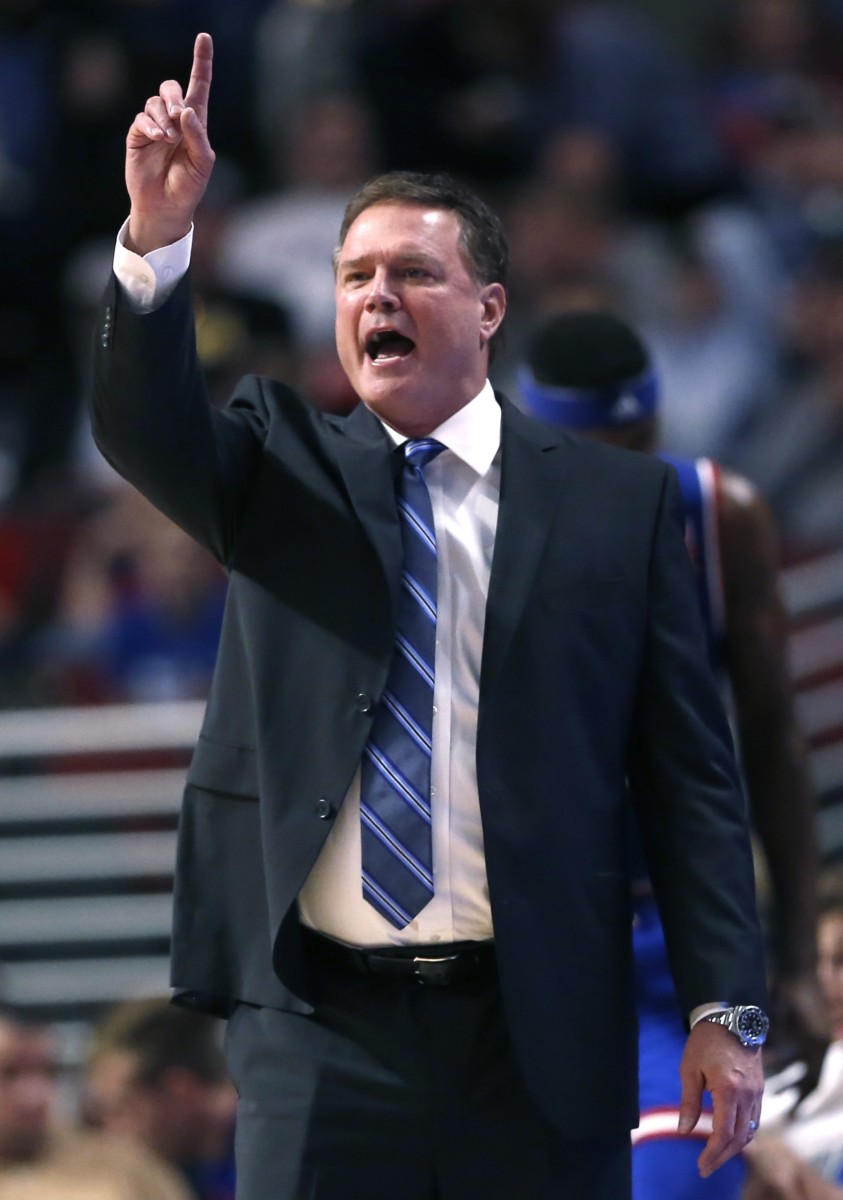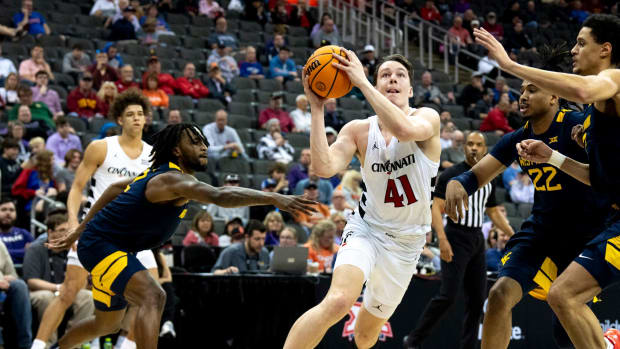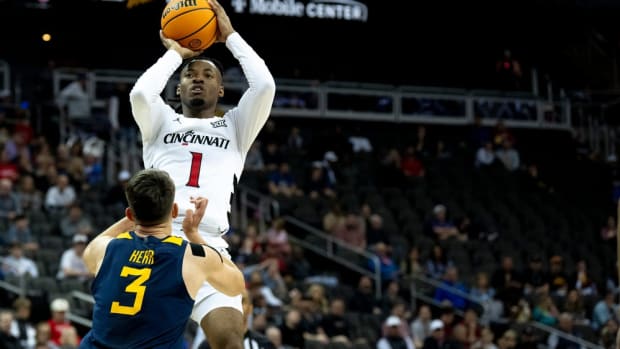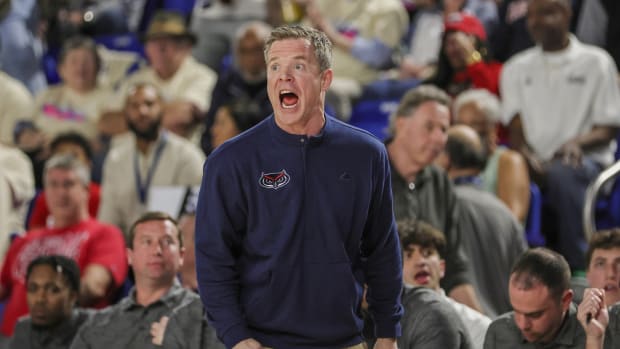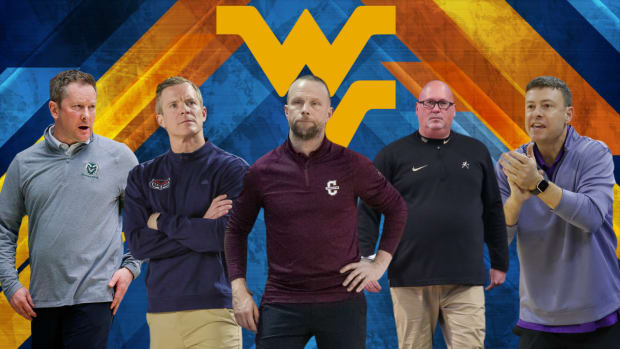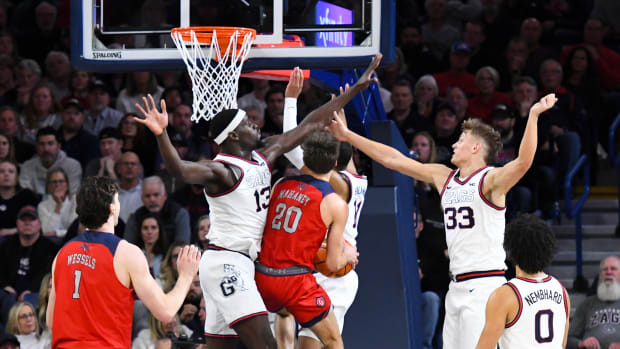Kansas officials sharply criticize NCAA over Diallo case
LAWRENCE, Kan. (AP) Kansas officials have sharply criticized the NCAA over its handling of five-star prospect Cheick Diallo, who remains ineligible to participate in games for the Jayhawks after several months of investigations.
In a letter from Kansas athletic director Sheahon Zenger to NCAA vice president Oliver Luck, the school contends that it has found ''serious and legitimate misrepresentations attributed to NCAA process, unfounded verbal statements and inadequate professional standards.''
The NCAA has been investigating Diallo's classwork from Our Savior New American, a prep school in New York, along with the forward's relationship with his guardian, Tidiane Drame.
The six-page letter, first obtained by the Lawrence Journal-World, outlines 19 concerns with the NCAA's investigation process, and describes in detail steps made by the school to provide the NCAA with the necessary paperwork to grant Diallo's eligibility.
''Our institutional investment is approaching six figures on all levels,'' Zenger wrote in the letter dated Nov. 10, adding he ''wholeheartedly supports such exhorbitant expenditures'' due to the numerous problems school officials have uncovered in the NCAA's handling of the case.
The 6-foot-9 Diallo is considered a likely NBA lottery pick, even though he has only played organized basketball for about five years. While still raw on offense, his high energy and ability to attack the glass could be the missing piece for Kansas to make a Final Four run.
Diallo has been cleared to practice with the Jayhawk, and this past weekend the NCAA granted a waiver so that he could travel with the team to the Maui Invitational in Hawaii. Kansas (1-1) opens against Chaminade on Monday night.
There still has been no movement in Diallo's ability to play in games, prompting coach Bill Self to call the process ''immensely frustrating'' on more than occasion.
The first issue that Kansas officials have with the process is a lack of partnership on behalf of the governing body's Eligibility Center, which has been evaluating Our Savior - a school that has produced numerous Division I prospects - for nearly four years with little explanation.
Zenger writes that Self, assistant coaches and the school's compliance director have visited the school on numerous occasions. They have observed classroom instruction, met with teachers and administrators and reviewed Diallo's classwork.
Meanwhile, Zenger said, the NCAA's staff has yet to visit the school in person.
''On numerous occasions,'' he wrote, ''Kansas staff has alerted NCAA staff when visiting OSNAS. The NCAA, until most recently, made no effort to accompany us on a visit.''
Zenger also criticized the NCAA over its lack of communication, contending that several months would go by before the Eligibility Center would respond to requests for information. In some cases, the information had been in the NCAA's hands since the beginning of its review process.
Then there is what Zenger called ''undue scrutiny'' of Diallo, a native of the French-speaking West African nation of Mali who moved to the U.S. to pursue an education and play basketball.
The school points out several graduates of Our Savior have gained eligibility through the waiver process, including Pittsburgh freshman Damon Wilson and Oklahoma State freshman Davon Dillard - both of whom where Diallo's teammates. Wilson actually attended high schools in Georgia and New Jersey before finishing at the prep school in New York.
''Yet somehow Cheick has been singled out,'' Zenger wrote. ''Based on the limited information the NCAA currently possesses about the school and its curriculum, it is not possible to distinguish between Cheick and the student-athletes whose waivers have been approved.''
The school sent copies of the letter to NCAA president Mark Emmert, several members of the NCAA Eligibility Center, Big 12 commissioner Bob Bowlsby and lawyers involved in the case.
''I close where I began,'' Zenger wrote. ''Cheick Diallo should be eligible immediately, because when reviewing the totality of this situation, it is clear the NCAA has failed to put forth an open-minded best effort for a student-athlete and to uncover facts supporting eligibility, all of which the University of Kansas did.''
